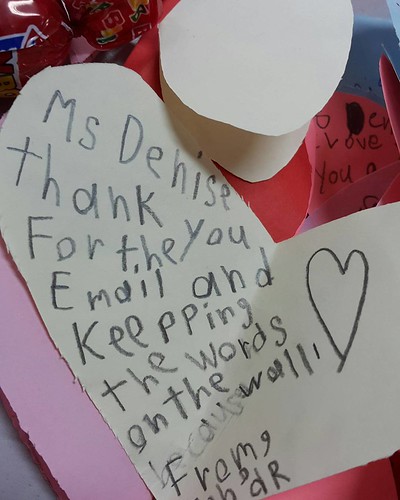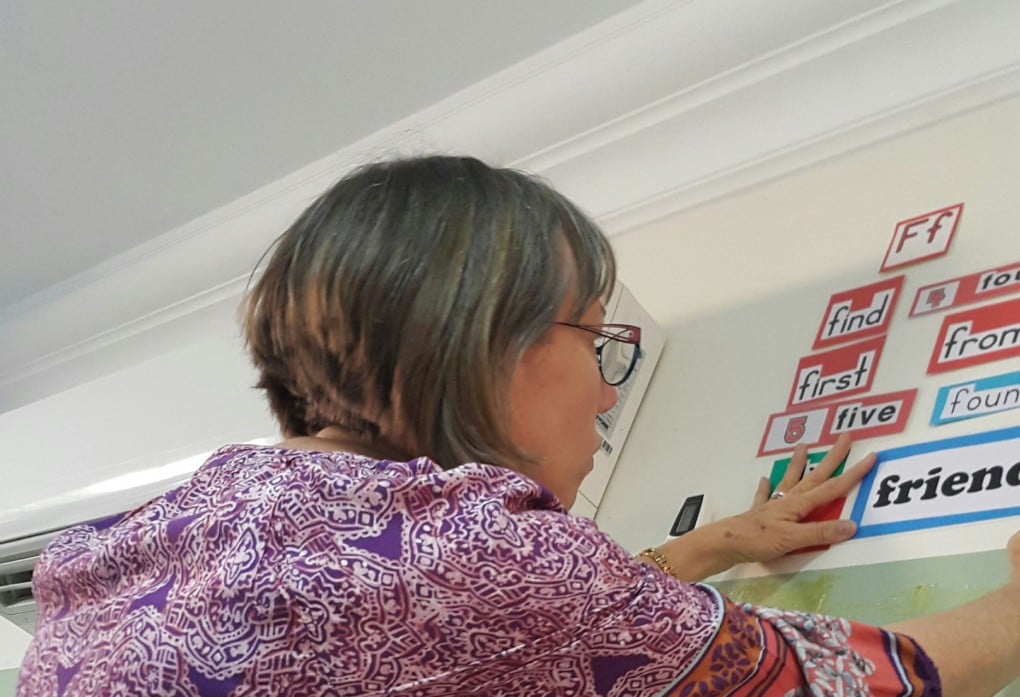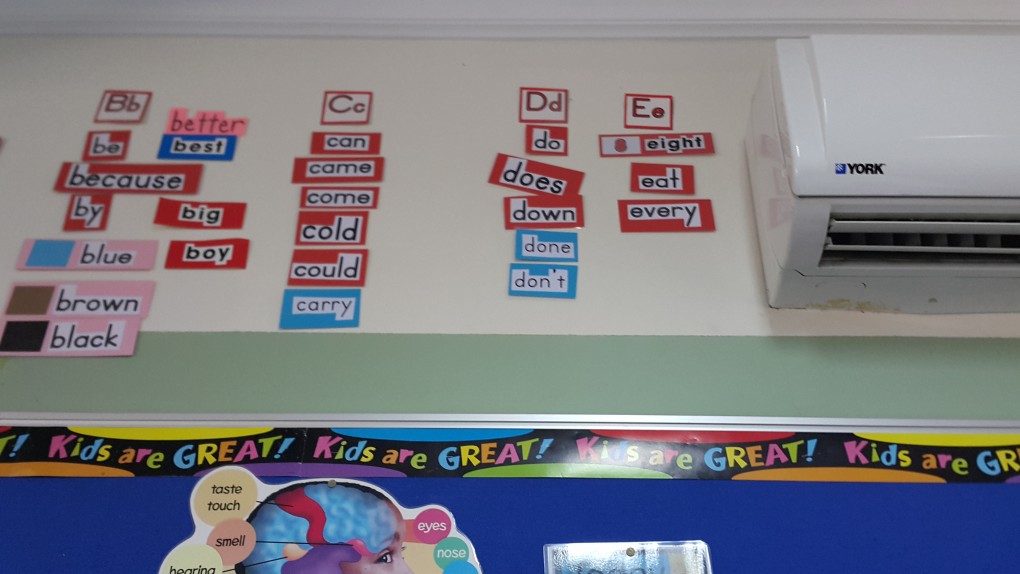I moved to second grade this year to a room chock-full of English language learners.
I’ve had a word wall for many years–in grades Kindergarten through 8. This is the first year, however, that I’ve received such positive feedback about the word wall. For instance, here are two things that happened within a week.
I received this valentine from one thankful student who takes pride in spelling high frequency words correctly.

Then this morning before school, I had to rearrange a few words because of maintenance work done over the weekend.

A different boy came in and saw me with words in my hand and proclaimed, “What? Are you taking the words down? I need them to spell ‘because’ when I write it.”
I was happy to be able to tell him that, indeed, I was not taking the words down.
His enthusiastic question has motivated me to find even more ways to use it effectively.
I have always known that children learn with confidence if they are given as much scaffolding as needed. The word wall is perfect for writing with children of all abilities.
Many children still need to look at the word wall to spell are instead of ar. Eventually these children will learn or at least tire of me pointing to are and reminding them to spell it correctly. They will become independent spellers.
Other children need the word wall very rarely. They have already put many words to memory, or the words are decodable and they have the key to unlock many English words.
Eventually my friend from this morning will know how to spell because independently–not because it was a word on his spelling list once upon a time. He’ll learn it because the expectations are high and the environment supports his learning. The best part, though, he’ll learn because he wants to!
Here’s a great resource for primary classes from Harcourt’s Storytown to make fun and effective use of the words on the word wall. (Intermediate grade activities here.)
A couple favorite activities we do to learn the words are chanting the spelling and the mind reader game. My favorite use of the word wall, though, is for authentic writing, as my two boys and their testimonials show.
How do you use a word wall?
